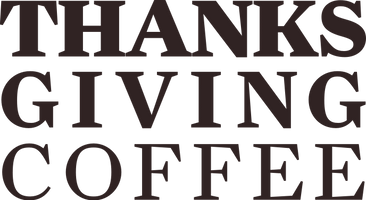An American Family Grows Coffee
How poor quality coffee becomes great: the time it takes
Back in 2004 I received a call from Lee Thorn, the president of the San Francisco chapter of Veterans for Peace (VPAT). Lee was a Vietnam veteran who dropped bombs on Laos and destroyed the lives and villages of innocent civilians - and forty years later he was still feeling guilty for having done so.
He said that VPAT was an organization that wanted to make amends to the Laotian people, and asked if I would help him and his group do so. He explained that while on a return visit to the Highlands of Laos he had seen the farmers growing coffee. His idea was to import their coffee to the states, have Thanksgiving Coffee roast and package it in a branded package (Jhai Coffee) and then have his veterans group sell it to other VPAT chapters around the country.
That was back in 2002, almost fifteen years ago!
I was all for it if Lee could develop the sales. We began with a single container - which we imported without even tasting it for quality. The price we paid was fully 50% higher than the world market price and that extra amount went to the farmers as a bonus for selling to us instead of their long-standing Japanese buyers. Even though the farmers were happy to get the bonus, they feared losing their long-standing buyers that didn't care about quality.
Coffee Farms in Laos
Coffee was planted in Laos by the French. They had colonized the country in the early part of the twentieth century. That part of the world was eventually known as “French Indo China” and included Vietnam and Cambodia. The French knew their coffee varieties and carefully selected the Typica variety as most suitable for the Laos climate and soil conditions.
Knowing this, I was certain that if the farmers picked fully ripe cherries and processed the pulp and seeds properly, we could get some really great coffee. We could also become the first coffee roasters in the states to offer coffee from Laos. The story would be War Veterans Giving Back to Those They Harmed.

Moving Forward with VPAT
The first container arrived and the coffee was fair. The flavor was flat, acidity was low, sugars were not developed well and it was obvious the farmers needed greater supervision in their coffee farming practices. The coffee had hints of greatness and obvious potential. But it would take training in new systems for bringing the coffee to export grade.
I decided to continue with the project although I was finding the coffee hard to sell. Lee had also over-estimated the sales potential of the other VPAT chapters. I believe this “adventure” cost Thanksgiving Coffee $50,000 in advertising, marketing, labels and brochures. By the end of that first year we had roasted the coffee into many French Roasts (irony) and had sold 50,000 Jhai Foundation Coffee Packages.
Lee hired a “Development Director” to work in Laos with the farmers to improve their agricultural practices, to harvest only red ripe cherries and to reduce imperfections to 2%. The 2003 Crop was really sweet and filled with caramel and nutty flavor tones, and I was happy!
That year my son Jonah was living in Cambodia. I asked him to make a visit to the Jhai Farmers to reinforce our commitment to the program and to the Jhai Farmers Cooperative. There he met Will Thomlinson, the VPAT Development Director that Lee had hired. Together they mapped out a plan for Thanksgiving Coffee to purchase two Containers (75,000 pounds) in the following year.
Now, with really good coffee that I knew could only get better, new and better harvesting practices, and a guarantee of sale, I and The VPAT members went into full sales and marketing mode. We sold a lot of Jhai Coffee packages. We raised a lot of money for the Laos coffee farmers. The money was given to VPAT and they transferred the money to Laos. I was more interested in the coffee side and building a new market for Laos coffee in the USA. My plan was to bring in great amounts of raw coffee as it became available over the years and to resell the coffee to other artisan roasters. It all seemed to be falling into place.
The following year, in 2005, Mr Thomlinson went rogue, selling our contracted coffee from that years crop to a Japanese company.
The project died.
The VPAT members dispersed and we at Thanksgiving Coffee got stuck holding 20,000 empty Jhai Foundation packages, 50,000 brochures, and egg on our face.
We moved on, a bit wiser and a bit poorer for the effort.
A Decade Later
Fast forward to 2014. Ten years pass and I get a call from a young man who was living in Seattle but traveling to Laos. He was so in love with the Lao people and obsessed with the fact that the children had no books in their schools. He started a program with a local coffee roaster, and called it “Coffee for Books.” One book was donated for each pound of coffee sold.
This young man wanted my advice and help to use Lao coffee beans for his project. He said he had met and made friends with coffee growers on the Bolivian Plain in Laos (The same region I had been dealing with a decade before) and was going back. Then asked if I would be his adviser, and implied that I would roast and package Lao coffee for his project, if he got the coffee exported to the USA.
I thought of the song lyric: “once burned, twice shy babe” and told him I would think about it – and get back to him before he left for Laos.
His name was Tyson Adams.
Read My Laos Experience: Part II now…







